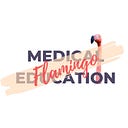My and Olle ten Cate’s Experiences on Questionable Editor Practices by a Medical Education Journal
Today, we’re focusing on a significant issue in the academic community. I want to share my personal experience with a medical education journal and highlight a related situation encountered by Olle ten Cate, to shed light on systemic issues within the peer review process. Peer review serves as the foundation of academic publishing. But what happens when this process becomes questionable?
Starting with my own story, I submitted a paper to this journal and faced a perplexing review process. In the first round, the reviewers called for revisions, which is a standard. No single comment from the editor. In the second round, Reviewer 1 asked for minor revisions to the abstract only, while Reviewer 2 felt all their comments had been adequately addressed. However, to my astonishment, the editor rejected the paper, criticizing the study design — a point that should have been raised initially if it was a concern.
I had no objection to receive a rejection. My paper can be rejected, as I receive rejection letter many times. However, the same decision could easily and should have been provided as a desk rejection, not after two rounds of peer-review by providing no single mention in the first round. This clearly wasted my and two reviewers valuable time.
I took to Twitter to express my frustrations. I received support from the academic community. Dr. Artino called this as a bad editor form, and Dr. Hautz shared a similar experience, emphasizing the waste of time for everyone involved.
Seeking explanation, I emailed the chief editor, highlighting these issues, hoping for intervention. Yet, the response was disheartening; they responded, “Please note that the editorial decision was considered only after consulting the chief editor of journal”. It showed that the chief editor approves this bad editor form.
This brings us to Olle ten Cate’s experience, which, while broader, underscores similar issues in the same journal. Olle, along with his colleagues, was invited to edit a collection titled ‘Advances in Entrustable Professional Activities’. Initially, they were led to believe they would guide the peer review process. However, they soon realized their roles were superficial, primarily used to attract submissions rather than to ensure the academic integrity of the content.
Despite negotiating for more meaningful involvement, they found themselves sidelined, with final decisions still resting in the hands of higher-level editors. The turnover rate among these editors was astonishingly high; Olle and his team dealt with no less than seven different individuals, none of whom had a background in health professions education. This lack of relevant expertise among the editors raises significant concerns about the quality and relevance of the review process.
This scenario is not just disheartening but reveals a fundamental flaw in the journal’s approach to academic publishing. As Olle pointed out, it’s indicative of a system where commercial interests and surface appearances take precedence over genuine scholarly contribution.
Both my experience and Olle’s illustrate a concerning situation in the journal. Consequently, I have reevaluated my commitment to peer reviewing for this journal. Over the past year, I have dedicated considerable time to reviewing more than 50 papers. However, in light of recent events, I now find myself declining most of the new review invitations from this journal. I just accepted the ones that I provided first round of review.
However, a surprising thing occurred: the same journal sent me an invitation to join their editorial board. I believe this is due to my commitment; I have consistently met deadlines and provided detailed reviews for dozens of papers, each review exceeding 800 words. Following the invitation, I reached out to the journal to express my concerns again and requested a comprehensive response to my issue before making a decision. They offered a detailed explanation and apologized for the negative experience, admitting that the rejection decision could have been taken before the peer-review process, but they did not mention any further action. This suggests that similar issues could arise again. They also expressed hope that this negative experience would not influence my decision regarding the invitation. However, it did affect my decision. Now, I am even more motivated to join the editorial board because I aim to set a positive example. I won’t waste the time of authors and reviewers by subjecting them to two rounds of review for a manuscript that, from the outset, has a fundamentally flawed study design. If I overlook such a “wrong study design” during the initial evaluation and the first round of peer review, and only recognize it after two rounds, I will step down as an editor. Therefore, I accepted the invitation to contribute to medical education research by being a good example.
As a community, we must advocate for change, demanding greater accountability and ethical standards within academic publishing. Let’s start a dialogue about these issues and work towards a system that respects and upholds the value of scholarly research.
I encourage you to share your own experiences and thoughts on this matter in the comments below. Together, we can push for a more ethical and accountable academic publishing landscape.
You can find the link to Olle’s paper on this at the description of the video: https://youtu.be/99JMOPbbG8E
See you and adios para amigos.
And also, don’t forget the flamingo.
Follow the Flamingo on X (Twitter): https://twitter.com/MedEdFlamingo
